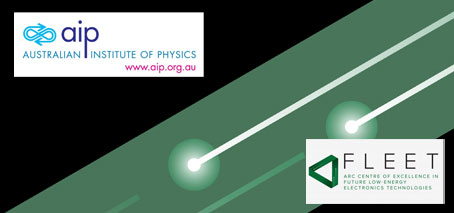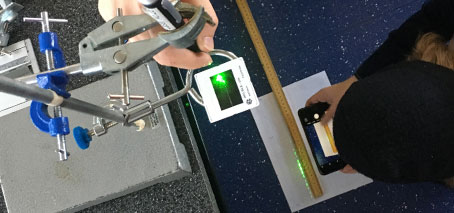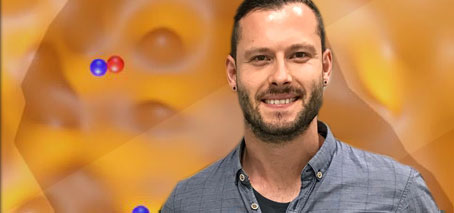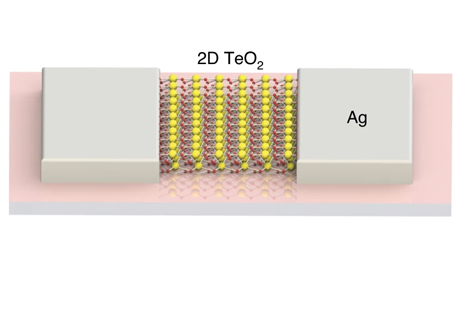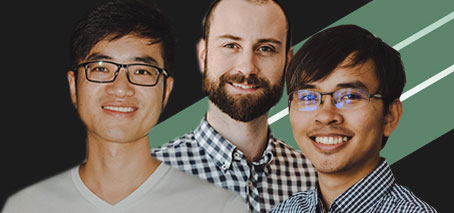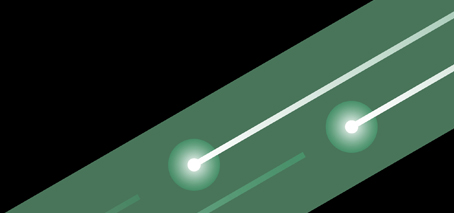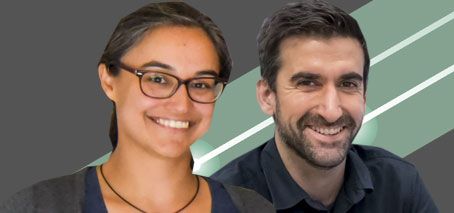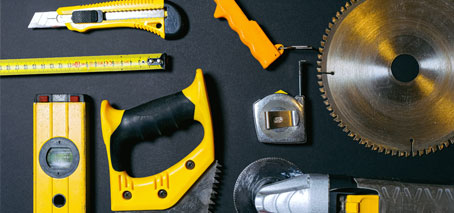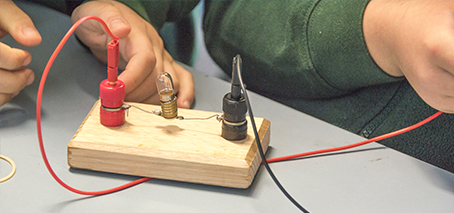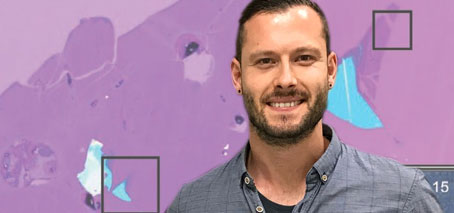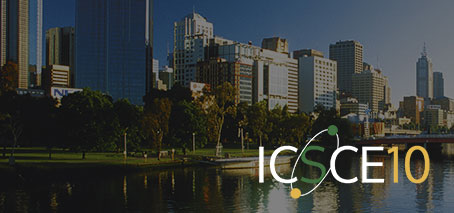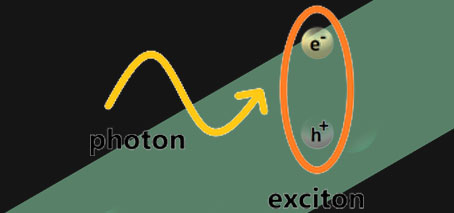There will be a feast of FLEET science in show at the Australian Institute of Physics Summer Meeting (this coming week, 6–9 December) at QUT in Brisbane, with parallel online delivery. The summer meeting will see plenary and keynote talks by FLEET’s Michael Fuhrer, Dimi Culcer and Kirrily Rule, with over 30 presentations by Centre members across six universities. FLEET …
Students confirm benefits of FLEET future-computing unit
Surveying and student interviews confirms success of future computing unit in encouraging girls/other students in physics Over the last three years FLEET has helped put ninety Year 10 students through a ‘Future electronics’ unit, in partnership with John Monash Science School (JMSS). As well as covering semiconductors, Moore’s Law and computing, the course introduces quantum physics at an intuitive level …
Understanding electricity
Sandwich-style construction: towards ultra-low-energy exciton electronics
New microcavity construction technique allows observation of robust, room-temperature exciton transport Polariton performance optimised by maximising photon-exciton energy exchange, minimizing the damage to monolayer A new ‘sandwich-style’ fabrication process placing a semiconductor only one atom thin between two mirrors has allowed Australian researchers to make a significant step towards ultra-low energy electronics based on the light-matter hybrid particles exciton-polaritons. The …
Diversity in FLEET Fellowships
Application deadline extended till 3 Dec 2021 The ARC Centre of Excellence in Future Low-Energy Electronics Technologies (FLEET) is seeking to appoint up to four outstanding early-career candidates as Research Fellows to perform research at relevant FLEET node/s as determined by the candidates’ expertise and research aspirations. The appointment is for up to two years (at a full-time load), with part-time …
Women in FLEET Fellowships
Application deadline extended till 3 Dec 2021 The ARC Centre of Excellence in Future Low-Energy Electronics Technologies (FLEET) is seeking to appoint up to four outstanding early-career candidates as Research Fellows to perform research at relevant FLEET node/s as determined by the candidates’ expertise and research aspirations. The appointment is for up to two years (at a full-time load), with …
Cold atoms seminar: Quantum behaviour of a heavy impurity in a Bose gas
Dr Jesper Levinsen, FLEET, Monash University Zoom meeting The scenario of an infinitely heavy impurity in a quantum medium is a fundamental problem in physics, with relevance ranging from electron gases to open quantum systems. Here I will consider the case of a heavy impurity interacting with a dilute Bose gas at zero temperature – the so-called Bose polaron. When …
Honours Project: Atomically thin materials coupled to light
The past couple of decades has seen a revolution in materials technology, the emergence of atomically thin materials. This was initiated by the discovery of graphene (2010 Nobel prize), but the field now comprises a range of different materials in the ultimate single-atom-thin limit. This project will focus on a particular class, the so-called transition metal dichalcogenides (TMDs), that possess …
FLEET schools: FLEET research and the need for the next generation of electronics
New DECRA fellowships at FLEET
Three FLEET Research Fellows are amongst those receiving DECRA Fellowships in ARC announcements this week. Congratulations to: Dr Matt Reeves (UQ) Calming the Superfluid Storm: Taming Turbulence in Superfluid Devices Dr Eli Estrecho (ANU) Mixing light and matter with complex gauge fields Dr Qingdong Ou (Monash) Engineering twisted 2D materials for mid-infrared detectors. Dr Matt Reeves (UQ) Calming the Superfluid …
Video explainers for 3MT
Tackling the next climate crisis with polariton superfluids, chocolate bars, ultra-fast laser pulses and chaotic gardening… FLEET’s Rishabh Mishra (Swinburne), Mitko Oldfield and Alex Nguyen (both at Monash University) have recently recorded explanations of their PhD research, submitted for the 2021 national Three Minute Thesis competition. Mitko Oldfield (School of Physics and Astronomy) explains his studies of polariton superfluids, with …
Congratulations Jemima and Tommy
Congratulations to Jemima Goodhew (UQ) – the newest Women in FLEET Honours scholar – and Tommy Bartolo (RMIT), who has received a FLEET writeup scholarship. Jemima Goodhew has been working with FLEET CI Prof Matt Davis at UQ on computationally modelling a 2D superfluid Helmholtz resonator, driven by a chemical potential difference. She is particularly interested in the transition to and …
Congratulations Meera Parish and Agustin Schiffrin
Congratulations to two of FLEET’s Chief Investigators, whose contributions have recently been recognised by the School of Physics and Astronomy at Monash University: Meera Parish promoted to full Professor Agustin Schiffrin promoted to Associate Professor Prof Meera Parish (right) is a theoretical physicist developing many-body theories that span electron-hole systems and ultracold atomic gases. She is an ARC Future Fellow …
FLEET 2021 Strategic Workshop
Members Only Event The 2021 FLEET Strategic Workshop will be in a hybrid format, in person at the Teaching and Learning Building, Monash Clayton and live-streamed on zoom for remote attendees. With the goal to review the Centre research milestones and strategic plan, this 3-day workshop program will have the following schedule: Wednesday 7 July 2021: Theme 1, A and …
Tools of the Trade: Eli Estrecho explains laser trapping for Nature series
A ‘pumped’ laser can be used to trap and manipulate an exciton-polariton condensate. These quantum fluids, which can behave as a resistanceless superfluid in certain conditions, need continuous replenishing, with the pumping laser supplying both a reservoir of electrons and confining force. “The pumping laser can trap the quantum fluid as the particles are repelled from the pump region, similarly …
Maintaining international links in the absence of international travel
US–Australian transpacific condensed-matter talks The temporary halt in international visits that traditionally spark and fuel research collaborations in 2020 pushed FLEET to find new ways to connect. Some positives have surfaced amid the negative impacts of Covid-19 travel bans on science collaboration, including the expansion in videoconferencing allowing researchers from geographically isolated regions to connect. Together with Centre partners at …
US-Aust. Transpacific Colloquium – Prof Gil Refael: Topological physics at the light-matter interface
If you missed the talk, you can catch it on YouTube AUST 24 February, 10am (AEDT – Melbourne) USA 23 February 7pm (EDT – New York) | 4pm (PDT – Los Angeles) Prof. Gil Refael Taylor W. Lawrence Professor of Theoretical Physics, Caltech Topological phases have been dominating the limelight in the past 10 years. They may provide a pathway …
FLEET represents at APS March
FLEET is dialling in to the online APS March Meeting from afar this year! Here’s a list of talks given by FLEET members and affiliates throughout the week to check out (if you have registered for the conference, catch-up links are provided on each page). Monday 15 March Ali Yazdani (Princeton University, FLEET Advisory Committee) Correlation and topology in magic …
Engaging senior school students at JMSS in 2020
In 2020, FLEET continued the Year 10 ‘Future electronics’ course launched the year before in partnership with John Monash Science School (JMSS), Victoria. As well as covering the history of semiconductors, Moore’s Law and computing, the course introduces quantum physics at an intuitive level (with minimal maths) and expands on this fundamental understanding to explain complex, useful quantum states such …
Encasing fragile 2D semiconductors in ultrathin glass: A route towards compact ultra-low energy electronics
Encasing fragile 2D materials in ultrathin gallium-oxide glass could allow integration into functional low-energy devices Two-dimensional (2D) semiconductors have emerged during the past decade as extremely promising for future electronic and optoelectronic devices. However, to unlock the significant potential of these fragile materials, we must first find a way to protect them in functional devices, while maintaining their key electronic …
Publications
Hosting scientific meetings in 2020 (ICSCE10)
In January 2020 FLEET brought the 10th International Conference on Spontaneous Coherence in Excitonic Systems (ICSCE10) to Australia for the first time. Continuing this 15-year tradition from the global scientific community interested in various quantum phenomena, ICSCE10 was hosted at the Arts Centre Melbourne amidst smoke storms resulting from one of the worst bushfire seasons in Australia’s history. ICSCE10 brought …
Polariton interactions: Light matters
Enhanced interactions through strong light-matter coupling Why do two-dimensional exciton-polaritons interact? The intriguing quasiparticle the exciton-polariton is part light (photon), and part matter (exciton). Their excitonic (matter) part confers them the ability to interact with other particles —a property lacking to bare photons. In theory, when confined to only two dimensions, very slow (ie, very cold) excitons should cease any …
Polariton pillar cavity: polarization, interactions, correlations
About the presenter Dr Olivier Bleu is a Postdoctoral Research Fellow working with A/Prof Meera Parishand Dr Jesper Levinsen at Monash University within FLEET’s Research themes 2: Exciton superfluids. His research interests include Berry curvature and related effects, topological photonics, Bose-Einstein condensates and exciton-polariton physics.
Congratulations Matthias Wurdack
Congratulations to ANU’s Matthias Wurdack on winning the AIP NSW Postgraduate Award this month for his presentation “Towards future low-energy transistor technologies with exciton-polariton superfluids in atomically thin semiconductors.” Matthias received the 2020 AIP Crystal Postgraduate figurine, and a $500 award from the Australian Institute of Physics. The NSW Branch of the Australian Institute of Physics in conjunction with the …
Towards contacting monolayer TMDC through touch-printed Ga2O3 tunnel barriers
About the presenter One of the three inaugural Women in FLEET fellows, Dr Semonti Bhattacharyya is contributing to FLEET Research theme 1, topological materials, Research theme 2, exciton superfluids and Enabling technology theme A, atomically-thin materials, working with Prof Michael Fuhrer. As an experimental condensed matter physicist, she has worked extensively on electrical transport properties of topological materials and …
Intrinsic and extrinsic effects on Dirac fermions in graphene covered by Ga2O3
About the presenter Matthew Gebert is a PhD student in Prof Michael Fuhrer’s group at Monash University, investigating the interface between the 2D surface state of a 3D topological insulator (TI) with a thin, insulating ferromagnetic material. The aims of the project are to understand the effects of time-reversal symmetry breaking on the topological insulator and to investigate the …
Non-equilibrium dynamics of a quenched Fermi gas
About the presenter Dr Paul Dyke is currently a research fellow at Swinburne University of Technology. Within FLEET, Dr Dyke is working in Research theme 3, he is experimentally studying Floquet topological superfluidity, non-equilibrium enhancements to superfluids and 2D topological insulators in synthetic dimensions.
Long-lived populations of momentum- and spin-indirect excitons in monolayer WSe2
In monolayer WSe2, the ground-state exciton is dark (D exciton, spin-indirect), and the valley degeneracy allows low-energy dark momentum-indirect excitons (XK exciton) to form. Interactions between the dark excitons and the optically accessible bright exciton (X) are likely to determine X exciton’s optical properties at high power and limit the ultimate exciton densities be achieved. However, so far, little is …
A new Measure: the Revolutionary Quantum Reform of the Metric System
On 20 May 2019, World Metrology Day, the international metrology community adopted revolutionary changes to the International System of Units (the SI, or Metric System) wherein all of the base units of measure are defined by fixing the values of constants of nature. The SI is now firmly based on quantum methods of measurement. This talk will discuss why …

